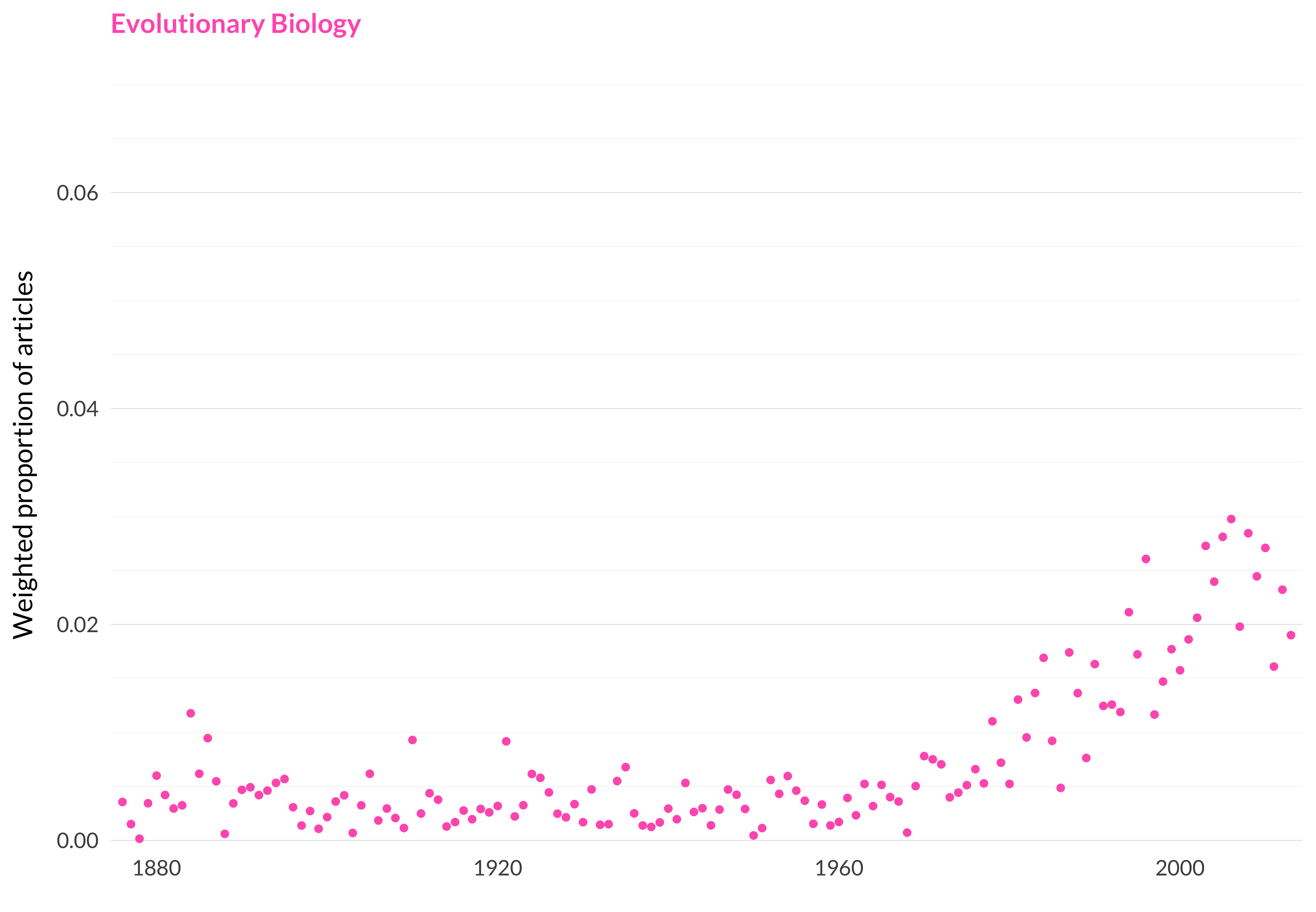2.82 Evolutionary Biology
Category: Philosophy of Science
Keywords: fitness, drift, darwin, selection, evolutionary, populations, species, adaptation, organisms, sober, evolution, biologists, trait, population, variation
Number of Articles: 420
Percentage of Total: 1.3%
Rank: 24th
Weighted Number of Articles: 317.4
Percentage of Total: 1%
Rank: 44th
Mean Publication Year: 1993.3
Weighted Mean Publication Year: 1988.5
Median Publication Year: 1999
Modal Publication Year: 2010
Topic with Most Overlap: Models (0.0268)
Topic this Overlaps Most With: Functions (0.079)
Topic with Least Overlap: Heidegger and Husserl (0.00035)
Topic this Overlaps Least With: Propositions and Implications (0.00023)

Figure 2.188: Evolutionary biology.

Figure 2.189: Evolutionary biology articles in each journal.
Comments
This topic is one of the most notable, and one of the most exciting, developments in philosophy in the past few decades. My sense is that one of the reasons this became such a big topic in philosophy is that there was getting to be less and less support within biology departments for the kind of theoretical work about the foundations of evolution that is being done here. Whether that’s true or not, large numbers of philosophers have started taking up this work, and the results are impressive.
From the perspective of the model, one striking thing about this topic is the nature of the “highly cited articles” list. It isn’t the longest such list, though it is well above average. But most of the other topics that have a long list of highly cited articles have many of those articles only loosely connected to the topic. (See topic 24 for the most notable example of that.) It’s striking to see so many highly cited articles that the model is more than 50 percent confident are in one particular topic.
It’s easy to think of this as a somewhat “specialist” topic. Apart from a few articles in the Journal of Philosophy, pretty much all the work is in the two philosophy of science journals. But I think it’s a somewhat parochial view inside philosophy to think of this as a specialized subject. When walking around a large university, it would be easy to find more people who could follow, and were interested in, these papers than in the papers on reasons or on knowledge. It’s true that a relatively small percentage of philosophers could follow, or even are interested in following, the papers in this topic. But that might say more about philosophers than about the material.